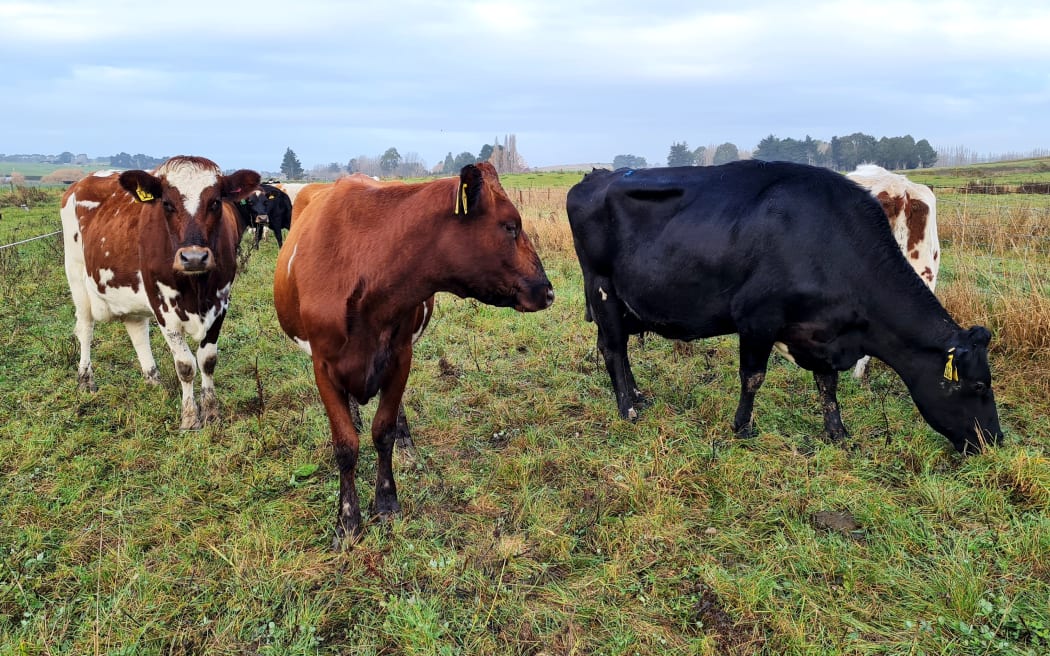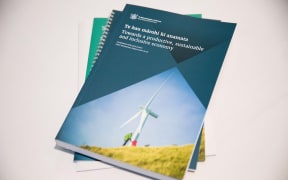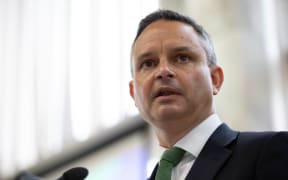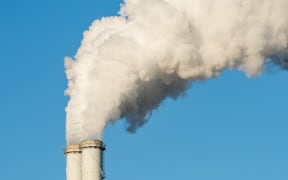Agriculture is a major winner in the government's plan to cut emissions, despite farmers having yet to pay a cent into the pot of money set aside for climate spending.

Photo: RNZ / Cosmo Kentish-Barnes
Industrial energy and transport were the other focus areas for the Emissions Reduction Plan, finally released today, which will see major shake-ups in every sector of society.
Read RNZ's wrap of the major spending
Nearly $340 million of the $2.9b in climate funding announced today will go on setting up a Centre for Climate Action on Agricultural Emissions.
It will research ways technology can be used to, for example, cut methane on the farm.
That is despite the sector not having paid anything into the funding pool for climate spending while it and the government wrangle over a separate pricing scheme - He Waka Eke Noa - with a decision due by the end of the year.
Oxfam Aotearoa campaigns lead Alex Johnston said it was a bit rich.
He said there has already been lots of money thrown at research and technology to reduce agricultural emissions and there is yet to be a significant reduction.
"Continuing to try and research miracle fixes for our existing intensive dairy production system is not going to lead to sustained reductions.
"If the government is going to be investing in these things it should have been helping to scale up regenerative organic farming and a change in our farming systems."
The funding for the Emissions Reduction Plan released today comes from money gathered from the emissions trading scheme which all sectors besides agriculture are paying into.
Finance Minster Grant Robertson conceded the funding plan was supposed to make sure those responsible for causing the pollution - paid.
But Robertson said the agricultural sector was too big an emitter - nearly 50 percent of the total - not to take action as quickly as possible.
"It's vitally important to us meeting the climate emissions budgets.
"We could have stood on principle and said 'no we're not going to put any funding from this in', but actually that doesn't help us when it comes to making the actual reductions that we need."
Agriculture Minister Damien O'Connor said agriculture was an important part of the economy and a wealth generator.
He said the large increase in research and development would speed up innovations already underway to cut emissions.
"Some of them are available, we need to speed up the process of implementation of those.
"So the innovation that we're starting to see has to be implemented to get the gains, and we will ramp up the reductions from agriculture in the second and third budgets.
"Our economic security depends on New Zealand's food and fibre sector. It's our biggest export earner but also our largest contributor to emissions, and if we don't take action now we will be at risk as consumer preferences evolve," he said.
DairyNZ said the government's R&D commitment would help dairy farmers remain high-performing.
"Because Kiwi dairy farmers are already so efficient, there's no silver bullet. We need new high-impact technologies and to accelerate their uptake to continue reducing our environmental footprint, while enabling farmers to run successful businesses," DairyNZ chief executive Dr Tim Mackle said.
Methane, while more damaging the CO2, is more short lived.
New Zealand's goal is to reduce methane by 10 percent by 2030, and 24 to 47 percent by 2050.
Industry energy predicted to drive reductions in the short term
Meanwhile, another major focus of the plan is moving industry away from using fossil fuels for energy and manufacturing, with $650m set aside over four years.
Part of the strategy is to ban new low and medium-temperature coal boilers, and phase out existing ones, by 2037.
But Rosemary Penwarden from Coal Action Network Aotearoa said that gives heavy polluters like Fonterra - the second largest user of coal in the country - a free pass for a decade and a half.
"I'm in Dunedin, I watch a train with 500 tonnes of coal going past my window every single day from Southland to Canterbury to get burned in one of three massive milk drying factories here in the South Island."
Energy Minister Megan Woods said the energy plans would see wins on the board quickly.
The programme aims to cut 17 percent of total emissions required in the next three years, and about a third of emissions reductions required by the end of the decade.
And $73m has also been invested into developing a bi-product of the forestry industry called 'woody biomass' as an alternative to fossil fuel in boilers.
The plan allocates $256.2m to forestry to help with carbon sequestration.
The will be some further climate spending in this year's Budget which is being released Thursday.






